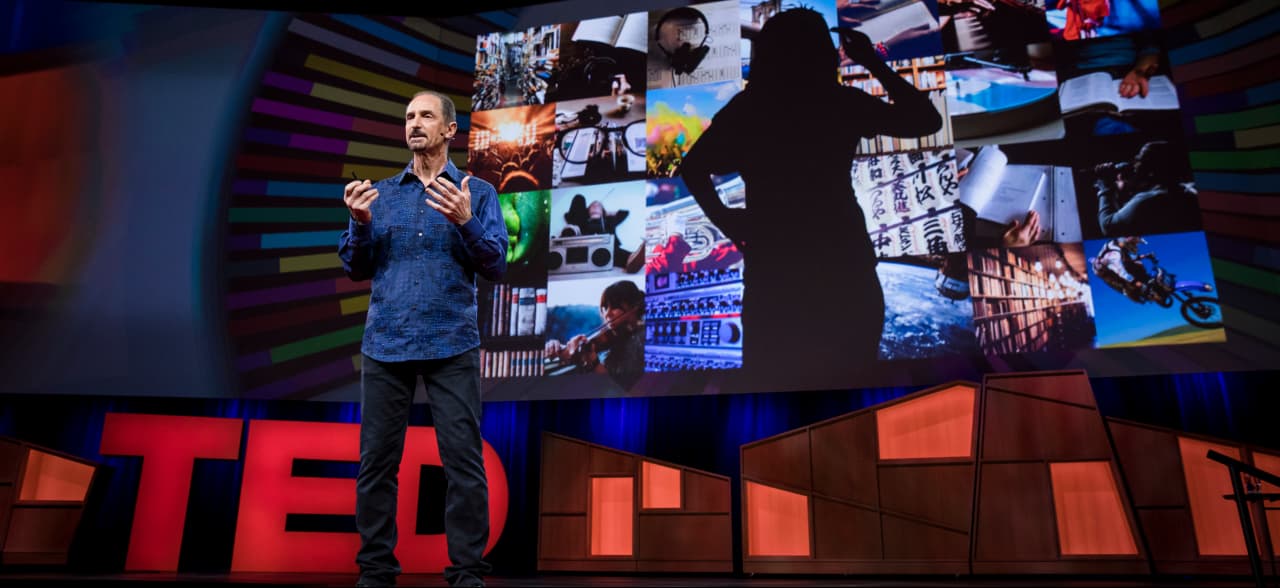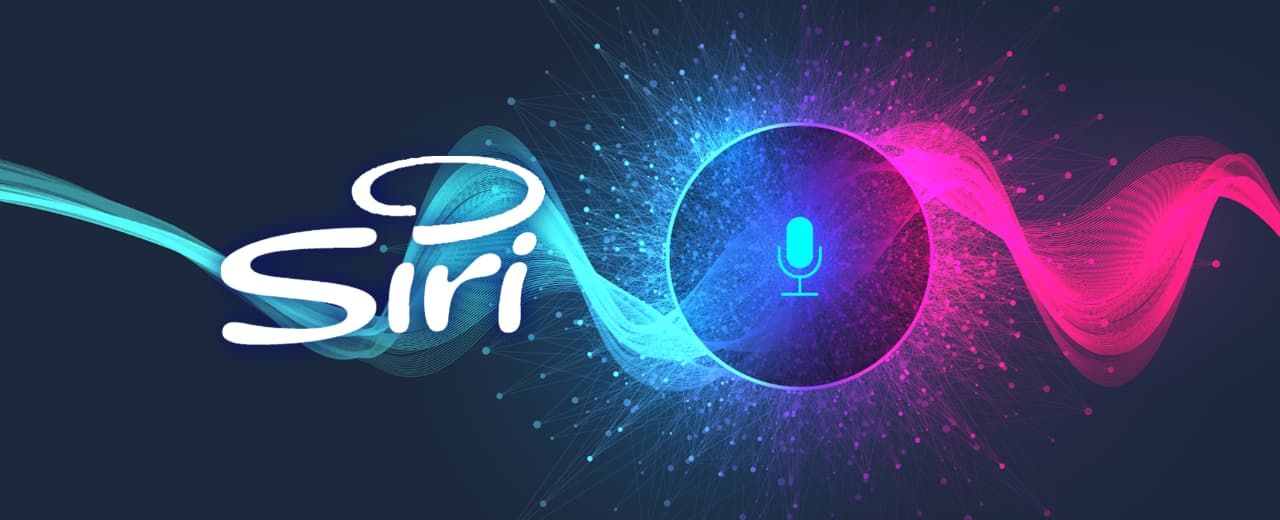A Brief History of Tom
Tom Gruber is a product designer and entrepreneur who uses AI technology to augment human intelligence, individually and collectively. He was cofounder, CTO, and head of design for the team that created Siri, the first intelligent assistant for everyone. In 2010 Siri was purchased by Apple and remains central to the user experience of all Apple products. Today, Siri is used more than 25 billion times a month in dozens of languages around the world. Tom’s professional career spans four decades, from graduate school during the classical AI period, through research at Stanford during the dawn of the Web, through founding a series of companies, to his present incarnation as speaker, writer, and impact advisor. Throughout his career Tom has pursued the question of how technology can help us live better lives. Applying ideas from artificial intelligence, cognitive science, and design, Tom’s work explores how connecting people and machines can foster collaboration, learning, knowledge sharing, and getting things done. Many of the innovations Tom created or influenced are taken for granted today, woven into the pattern of our digitally mediated lives.

Humanistic AI Advocate
As a speaker and writer, Tom advocates for what he calls Humanistic AI: Artificial Intelligence that augments and collaborates with humans, vs. competing with or replacing them. Leveraging his decades in AI development, Tom offers guiding principles and practical advice about how to make ethical choices when applying this powerful technology. The key lies in aligning human values and human benefit with the objectives on which the AI systems are trained.
In his main stage TED talk in 2017, Tom introduced the guiding philosophy of Humanistic AI. He shared his vision for a future where AI helps us achieve superhuman performance in perception, creativity and cognitive function. In subsequent talks in 2019 and 2020, he elaborated on the dangers of misaligned AI and the opportunities for humanity of exciting new applications.Tom furthers this movement today as advisor to over a dozen companies who are innovating at the forefront of humanistic AI applications. In addition to his advisory work he is a founding board member of the Partnership on AI to Benefit People and Society and advocates for the Center for Humane Technology.
Inventor, Innovator, Thought Leader
A driving force in Tom’s work has been applications that augment human intelligence, individually and collectively. People need better ways to communicate, remember, learn from each other, and access the world’s knowledge. If you use Siri on your phone, learn from a threaded discussion on the web, collaborate with colleagues in a virtual workspace, or use a computer to help you speak, it is likely that Tom helped invent it, influenced its development, or was designing an early version of it before it entered the mainstream.
Throughout his career, Tom has explored the intersection of AI and the UI between humans and computers. At Stanford University at the dawn of the Web, Gruber was a pioneer in the use of the Web for knowledge sharing and collaboration. He evangelized the idea of ontologies as a technology for enabling knowledge sharing and is credited with giving the term ontology a technical definition for computer science. He was part of the DARPA-sponsored group that proposed mechanisms for knowledge sharing among AI systems, and helped establish the technical foundations for the Semantic Web, proposed by Sir Tim Berners-Lee, the creator of the original standard of the World Wide Web.
Tom also led the Stanford team that invented and deployed the first Virtual Document applications on the Web that generate natural language explanations in response to questions. This continued a line of research in intelligent interfaces that ranged from knowledge-based communication prosthesis that gave voice to the speechless, and interfaces for experts to build their own expert systems.
Along with colleagues at Stanford, Xerox PARC, and SRI, Tom designed systems that provided shared virtual spaces for collaborative work, agent-based collaborative engineering, and collaborative learning. To support the collaborations of these groups and the WWW research community, Tom invented HyperMail, the widely used open-source application that turns email conversations into collective memories on the Web.
Tom was the founder and CTO of Intraspect Software, which pioneered the space of collaborative knowledge management — software that helps large communities of professionals contribute to and learn from a collective body of knowledge. Intraspect combined Web-scale mass collaboration technology with Google-like information retrieval to build dynamic, self-sustained bodies of collective knowledge.
During the rise of Web 2.0, Tom co-founded and built RealTravel, a collective knowledge system where millions of travelers from around the world shared their experiences. He is also a founder and Chief Scientist of Consider Solutions, a consultancy that helps Global 2000 companies design and implement coordinated systems of technology, processes, and human organizations to maximize organizational effectiveness. Tom is presently co-founder and CTO of LifeScore, which is creating a new way to experience music, called adaptive music. Adaptive music is dynamically composed and produced as it plays, which allows it to adapt to contexts, personal needs, and the state of the listener. The company’s mission is to offer music of the same quality as the finest human-composed music, while enabling the benefits of computer-mediated adaptive music. LifeScore is able to deliver on this promise with a unique synthesis of human creativity and proprietary technology.

Guiding the Development and Application of AI for Positive Impact
As a serial entrepreneur, inventor, and designer of AI applications, Tom reached a career milestone with the sale of Siri to Apple in 2010. He stayed on to lead the Advanced Development Group, where he could explore dozens of new product ideas. After eight years at Apple, Tom “retired” to pursue Impact Advising, investing his time and expertise to maximize human impact.
Tom uses the guiding principles of Humanistic AI to curate his advisory portfolio. The companies and organizations he advises all use AI to augment humans for the benefit of society. In his work with Cognixion, Tom consults on ways to use AI to help people with severe speech impairments by interpreting EEG signals on a wearable communication device. In his work with TRU LUV, he is advising the company on how to create AI characters in game-like environments that interact through self care and nurturing, rather than competition and violence.
In the fields of mental and physical health care, Tom advises companies like Mindstrong, which uses AI to interpret mobile phone activities that predict mental health problems; and Migraine.ai, which uses AI to predict the onset of migraines so they can be more effectively addressed. The products of these companies show how Humanistic AI applications can be instrumental in our ability to understand ourselves and our environment.
Art and Advocacy: Creating Empathy for Life in the Ocean
For Tom, photography is both a creative passion and an essential mission. He is privileged to travel around the world to dive in places where marine life still thrives. Through the medium of underwater photography and video, he hopes to create an empathy and connection with the natural world. As William Shakespeare once said: “One touch of nature, one beautiful image, can remind us that we are all kin.”
Tom also applies his expertise as a technologist and entrepreneur to companies on the front lines of ocean conservation. As an officer and board member of Deep Hope, he participates with this groundbreaking nonprofit organization to advance exploration of the ocean at depth. He’s a technical advisor to Ocean Elders, bringing together global leaders to use their collective influence to help protect the ocean’s habitat and wildlife. Tom is also proud to advise the Ocean Plastics Leadership Network (OPLN), a diverse group of leaders, organizations and interests, coming together with one common goal — to end the flow of plastics into our oceans.
Tom believes it is worth fighting hard — now — to save the ocean during our lifetimes. It will take a radical change in awareness and a fundamental shift in the way we approach the extraction of resources from our global commons.
Above all, Tom is a humanist who believes in the potential of technology to support human collaboration and knowledge sharing and have a positive influence in the world. He’s dedicated his life as an innovator, artist and entrepreneur to advocating for the ethical use of technology that enhances our lives and protects the environment that sustains us.


